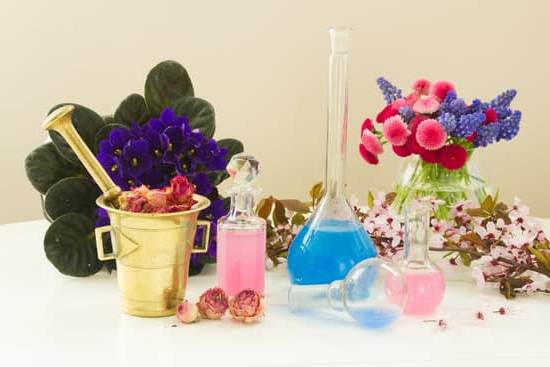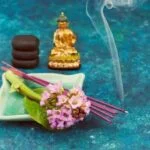Aromatherapy has been used for centuries as a holistic healing treatment, utilizing the power of essential oils to promote overall well-being. In this article, we will explore the benefits of aromatherapy and the use of essential oils and diffusers. Aromatherapy oils and diffusers are gaining popularity for their therapeutic properties and ability to create a relaxing atmosphere in homes and workplaces.
Aromatherapy is an alternative medicine practice that harnesses the natural oils extracted from flowers, bark, stems, leaves, roots or other parts of a plant to enhance psychological and physical well-being. The scents from these potent oils are believed to stimulate brain function, positively affecting emotions, memory, learning, and other vital body functions. Diffusers are used to disperse these aroma-therapeutic oils into the air creating a fragrant environment.
Understanding the science behind aromatherapy is essential to recognizing its numerous benefits. Through our exploration of how aromatherapy works on a physiological and psychological level, we will gain insight into the profound impact that essential oils can have on our health.
Additionally, we will highlight some of the most popular and effective essential oils for aromatherapy while discussing their specific benefits. Whether you are looking to alleviate stress or improve sleep quality, there is an essential oil out there for you.
The Science Behind Aromatherapy
Aromatherapy is more than just a pleasant scent. It actually works on both a physiological and psychological level to provide therapeutic benefits. When essential oils are inhaled, the molecules travel through the nasal passage and stimulate the olfactory nerves, which then send signals to the limbic system of the brain. This part of the brain is responsible for emotions, memory, and behavior, which is why certain scents can evoke specific feelings or memories.
On a physiological level, aromatherapy oils can have direct effects on the body’s systems. For example, inhaling lavender essential oil has been shown to reduce anxiety and promote relaxation by slowing down the nervous system activity. In addition, peppermint oil has been found to relieve headaches by opening up sinus passages and increasing oxygen supply to the brain.
The use of diffusers plays a crucial role in delivering aromatherapy oils into the air for inhalation. Depending on the type of diffuser used, the essential oils are dispersed in different ways – whether through heat, ultrasonic vibrations, or nebulization. This allows for efficient and consistent distribution of the therapeutic scents throughout a space for maximum benefit.
- Physiological effects are induced through inhalation of essential oils
- Stimulation of olfactory nerves triggers responses in limbic system
- Diffusers play an important role in dispersing therapeutic scents
Top Aromatherapy Oils
When it comes to aromatherapy, essential oils play a key role in providing therapeutic benefits. Each essential oil has unique properties that can cater to different needs, whether it’s relaxation, mental clarity, or physical healing. Here are some of the most popular and effective essential oils for aromatherapy and their specific benefits.
Lavender Oil
Lavender oil is one of the most versatile and widely used essential oils in aromatherapy. Known for its calming and soothing effects, lavender oil can help reduce stress and anxiety. It is also revered for its ability to promote better sleep and relieve headaches.
Peppermint Oil
Peppermint oil is well-known for its invigorating and energizing properties. It can help enhance mental focus and alleviate feelings of fatigue. In addition, peppermint oil is often used to relieve digestive issues and muscle pain due to its cooling sensation.
Tea Tree Oil
Tea tree oil is valued for its powerful antimicrobial and anti-inflammatory properties. It is commonly used to support immune function and treat skin conditions such as acne, eczema, and fungal infections. In aromatherapy, tea tree oil can also promote a sense of purification and cleanliness.
These are just a few examples of the many essential oils available for use in aromatherapy. Whether you’re looking to uplift your mood, ease physical discomfort, or create a calming atmosphere, there’s an essential oil that can cater to your needs when used with diffusers. Speaking of diffusers.
Stay Tuned For The Next Section.
Choosing the Right Diffuser
When it comes to choosing the right diffuser for your aromatherapy needs, there are several factors to consider. The type of diffuser you choose can impact the effectiveness and benefits of the essential oils you use. Here is a guide to selecting the best diffuser for your needs, including ultrasonic, nebulizing, and heat diffusers:
- Ultrasonic Diffusers: These diffusers use electronic frequencies to create vibrations that break down essential oils into microparticles, dispersing them into the air as a fine mist. Ultrasonic diffusers are popular for their ability to maintain the therapeutic properties of essential oils and for adding humidity to the air. They are also relatively quiet and can cover a larger area.
- Nebulizing Diffusers: Nebulizing diffusers do not require water or heat to disperse essential oils. Instead, they use pressurized air to create a fine mist of pure essential oil particles. This method preserves the integrity and potency of the oils, making it ideal for therapeutic purposes. Nebulizing diffusers are suitable for smaller spaces and provide a more concentrated aroma.
- Heat Diffusers: Heat diffusers use heat to evaporate essential oils into the air. While they are easy to use and cost-effective, they may alter the chemical composition of the oils and reduce their therapeutic benefits. Heat diffusers can be a good option for creating a pleasant aroma in a specific area, but they may not be as effective for aromatherapy purposes.
Ultimately, the best diffuser for you will depend on your personal preferences, the size of the space you want to cover, and your specific aromatherapy goals. It’s important to consider how each type of diffuser works with different essential oils and how they fit into your lifestyle.
When selecting a diffuser, consider factors such as ease of maintenance, noise level, automatic shut-off features, and additional functions like LED lights or timers. Taking these aspects into account will help you choose a diffuser that aligns with your needs and enhances your aromatherapy experience.
Aromatherapy for Health and Wellness
Aromatherapy has long been used as a natural remedy for stress relief, improved sleep, and overall well-being. Essential oils, when used in conjunction with diffusers, can create a soothing and calming atmosphere in any environment.
Aromatherapy works by stimulating the olfactory system, which then sends a signal to the brain, triggering a release of neurotransmitters that can positively impact mood and emotions. By understanding the benefits of aromatherapy oils and defusers, individuals can harness these powerful tools for their own health and wellness.
One of the most popular uses of aromatherapy is for stress relief. Certain essential oils such as lavender, chamomile, and bergamot have been shown to have calming properties that can help reduce feelings of anxiety and promote relaxation. When used in a diffuser, these oils can create a serene environment that allows individuals to unwind and de-stress after a long day.
In addition to stress relief, aromatherapy can also be beneficial for improving sleep quality. Essential oils like lavender and cedarwood are known for their sedative effects and can help promote a sense of calmness that is conducive to better sleep.
By using a diffuser in the bedroom with these essential oils, individuals may find that they are able to fall asleep more easily and experience deeper, more restful sleep throughout the night. Overall, incorporating aromatherapy into daily routines can have significant positive effects on both mental and physical well-being.
Aromatherapy for Home and Environment
Aromatherapy is not only beneficial for personal health and wellness but can also significantly impact the environment in which it is used. Using aromatherapy oils and diffusers in your home or workspace can enhance the atmosphere and improve air quality. Essential oils have natural properties that can purify the air, eliminate odors, and create a more inviting space.
One of the key benefits of using aromatherapy in your home is the ability to improve indoor air quality. Many essential oils possess antibacterial, antiviral, and antifungal properties that can help eliminate airborne pathogens and reduce the risk of respiratory issues. Diffusing oils such as tea tree, eucalyptus, or lavender can contribute to a healthier indoor environment by combating mold, bacteria, and viruses.
In addition to improving air quality, aromatherapy can also have a positive impact on the overall atmosphere in your home or workspace. Certain essential oils are known for their calming and uplifting effects, helping to create a more peaceful and harmonious environment. Oils like chamomile, bergamot, or citrus blends can be used to promote relaxation, reduce stress, and improve mood in any living or working space.
| Types of Diffusers | Description |
|---|---|
| Ultrasonic Diffuser | Uses ultrasonic vibrations to disperse essential oil particles into the air as a fine mist |
| Nebulizing Diffuser | Does not require water and uses pressurized air to break down essential oils into small particles for dispersion |
| Heat Diffuser | Uses heat to evaporate essential oils into the air, but may alter their chemical composition |
Using aromatherapy oils anf defusers is an effective way to transform any space into a rejuvenating sanctuary or serene oasis. Whether you’re looking to create a calm ambiance at home or boost productivity in your workspace with invigorating scents, incorporating aromatherapy into your environment can have numerous benefits for your overall well-being.
Tips for Using Aromatherapy Oils and Diffusers
Aromatherapy oils and diffusers have become increasingly popular for their therapeutic benefits, but it’s important to use them safely and effectively. Here are some practical tips for using aromatherapy oils and diffusers to maximize their benefits while minimizing any potential risks.
Dilution Guidelines
When using essential oils in a diffuser, it’s essential to dilute them properly to ensure safety and effectiveness. The general rule of thumb is to add 5-10 drops of essential oil to the water reservoir of your diffuser, depending on the strength of the oil and the size of the room. It’s also important to follow specific dilution guidelines for different essential oils, as some may require more or less dilution than others.
Blending Techniques
Creating your own personalized aromatherapy blends can be a fun and rewarding experience. When blending essential oils for use in a diffuser, it’s crucial to consider both the aroma and the therapeutic properties of each oil. Start by choosing a base note, middle note, and top note oil to create a balanced blend. Experiment with different combinations and ratios until you find a blend that suits your preferences and needs.
Safe Usage Practices
To ensure safe usage of aromatherapy oils and diffusers, it’s important to carefully read the manufacturer’s instructions for your specific diffuser model. Always use high-quality, pure essential oils from reputable sources to avoid potential contaminants or adulterants. Keep diffusers out of reach of children and pets, and never ingest essential oils or apply them directly to the skin without proper dilution.
By following these practical tips for using aromatherapy oils and diffusers, you can enjoy the many benefits of this ancient healing practice while ensuring safe and effective usage in your daily life. Whether you’re seeking relaxation, stress relief, or simply a pleasant aroma in your home or workspace, aromatherapy can be a valuable addition to your wellness routine when used mindfully and responsibly.
DIY Aromatherapy Blends
Aromatherapy is a therapeutic practice that involves using natural plant extracts, known as essential oils, to promote health and well-being. By harnessing the power of aromatic compounds, aromatherapy has been shown to have a wide range of benefits for both the body and mind. One of the most popular ways to enjoy the benefits of aromatherapy is by creating personalized blends using essential oils and diffusers.
When creating your own personalized aromatherapy blends, it’s important to start with high-quality essential oils. There are many different essential oils to choose from, each with its own unique scent and properties. Some popular essential oils for aromatherapy include lavender, peppermint, eucalyptus, and tea tree oil. These oils can be blended together to create custom scents that cater to your specific needs and preferences.
In addition to selecting the right essential oils, choosing the best diffuser for your needs is also crucial in creating effective aromatherapy blends. There are several types of diffusers available, including ultrasonic diffusers, nebulizing diffusers, and heat diffusers. Each type of diffuser has its own advantages and drawbacks, so it’s important to consider factors such as room size, noise level, and maintenance when selecting the right diffuser for your personalized blends.
| Essential Oil | Properties |
|---|---|
| Lavender | Calming, soothing, promotes relaxation |
| Peppermint | Invigorating, energizing, helps with focus |
| Eucalyptus | Refreshing, purifying, supports respiratory health |
| Tea Tree Oil | Antiseptic, anti-inflammatory, supports skin health |
By understanding how different essential oils work together and choosing the right diffuser for optimal dispersion of your blend’s aroma you can create effective personalized blends that suit your specific needs and preferences. Whether you’re looking to reduce stress and anxiety or improve focus and concentration Aromatherapy Oils Anf Defusers have you covered.
Conclusion and Resources
In conclusion, aromatherapy oils and diffusers offer a natural and holistic approach to health and wellness. By understanding the benefits of aromatherapy and the science behind it, individuals can harness the power of essential oils to improve their physical, mental, and emotional well-being. The top aromatherapy oils highlighted in this article, such as lavender, peppermint, and eucalyptus, each offer unique benefits that can be utilized for different purposes, from stress relief to improved sleep.
When it comes to choosing the right diffuser, it’s important to consider factors such as room size, noise level, and desired features. Whether opting for an ultrasonic diffuser for its quiet operation or a nebulizing diffuser for its strong concentration of essential oil particles, finding the best fit for your needs is crucial in maximizing the benefits of aromatherapy. Furthermore, integrating aromatherapy into your home or workspace can create a more pleasant atmosphere while also improving air quality.
For those looking to delve deeper into the world of aromatherapy, there are countless resources available from reputable sources such as certified aromatherapists and essential oil companies. With practical advice on dilution techniques and safe usage of essential oils in diffusers, individuals can confidently explore DIY aromatherapy blends tailored to their specific needs. Through continued research and experimentation with essential oils and diffusers, anyone can unlock the full potential of aromatherapy for a healthier and more balanced lifestyle.
Frequently Asked Questions
Can You Use Aromatherapy Oils in a Diffuser?
Yes, you can use aromatherapy oils in a diffuser. Simply add a few drops of your chosen essential oil to the water in the diffuser and turn it on to enjoy the aroma.
What Are the Best Essential Oils for Diffusers?
The best essential oils for diffusers depends on personal preference and desired effects. Some popular choices include lavender for relaxation, peppermint for energy, eucalyptus for congestion relief, and lemon for a fresh scent.
Is Diffusing Essential Oils Safe for Your Lungs?
Diffusing essential oils can be safe for your lungs when done properly. It’s important to follow the manufacturer’s instructions, use high-quality oils, and avoid overexposure. If you have respiratory issues, consult with a healthcare professional before using essential oils in a diffuser.

Are you looking for a natural way to improve your health and wellbeing?
If so, aromatherapy may be the answer for you.






